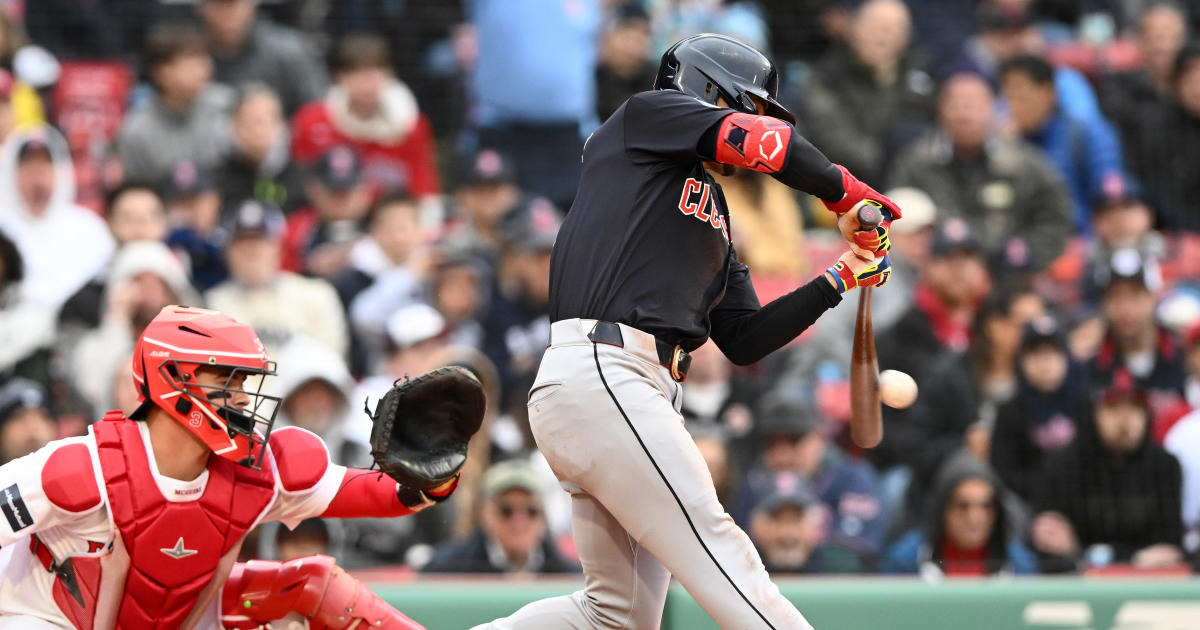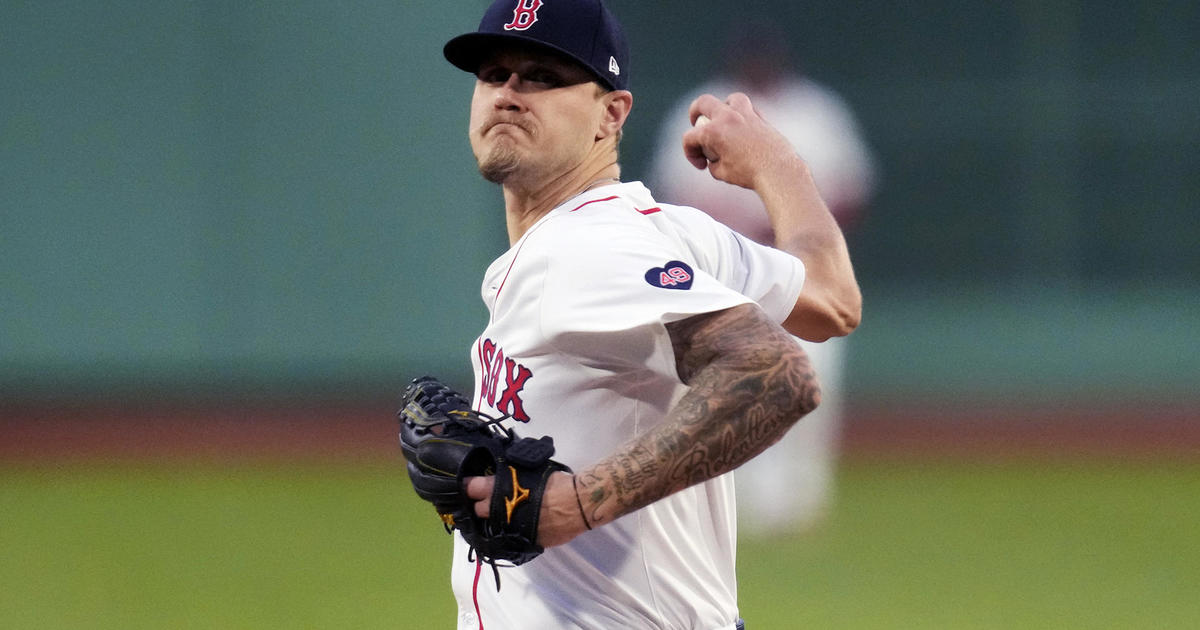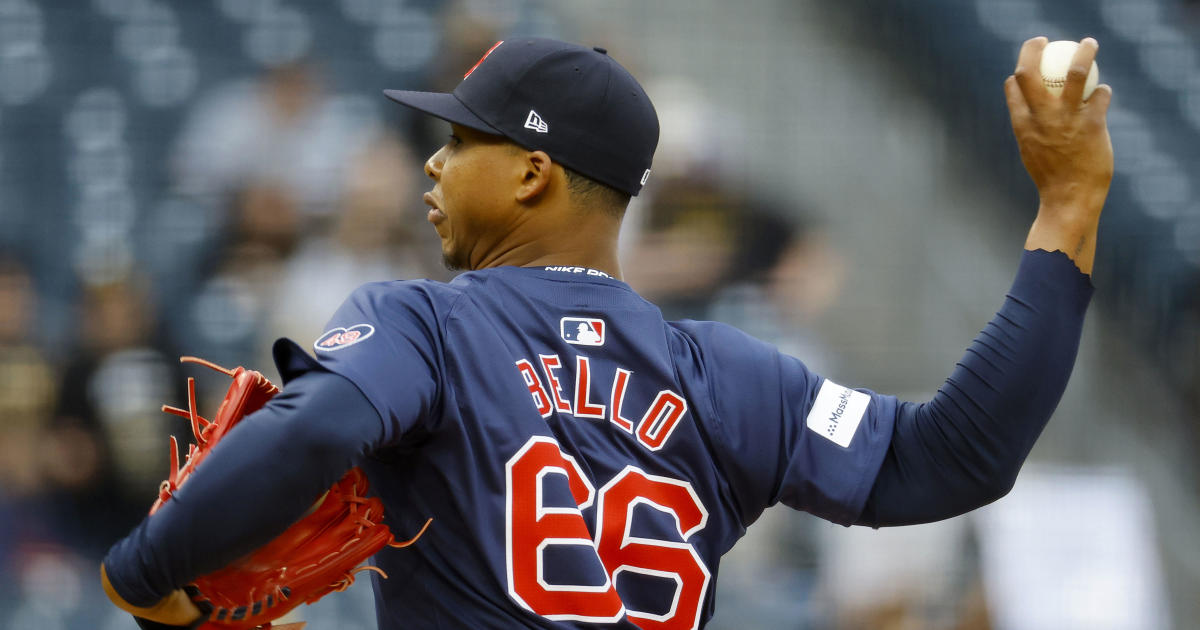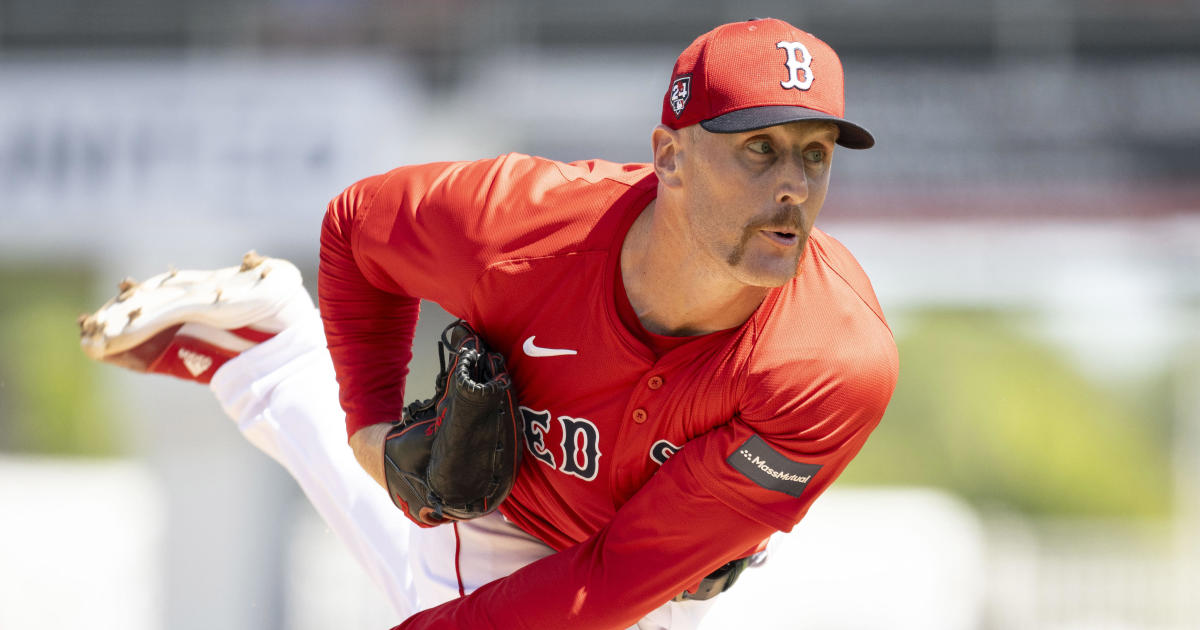Massarotti: West Coast Meltdown For Red Sox
BOSTON (CBS) -- While you were sleeping, in their 100th game of the season, this is how the Red Sox imploded last night in the ninth inning of a 2-1 loss to the Anaheim Angels: with a classic second-guess of manager John Farrell; with a rushed, low throw by third baseman Travis Shaw; with some questionable pitching by Brad Ziegler; and with an absolutely, positively wretched throw by Hanley Ramirez, whose error scored two runs that erased both an excellent pitching performance by David Price and a potential 1-0 victory.
As far as breakdowns go, this one was a doozy.
Here's the conclusion, Red Sox followers: your team has a problem late in games. There is simply no other way to put it. The Red Sox either win early or they do not win at all, the latest example coming in an avalanche of mistakes against a bad Los Angeles Angels team at one of the worst possible times.
And if the Sox don't find a solution – and soon – they will carelessly toss away a season that has had much promise.
How did the Sox lose this? Let us count the ways:
* Price had thrown 109 pitches, including 13 in the eighth inning, when Farrell lifted him from the game in favor of Brad Ziegler, who had surrendered a game-winning home run to Miguel Cabrera on Wednesday. Ziegler promptly allowed hits to three of the first four hitters he faced – he also recorded a strikeout – before Daniel Nava's fateful bouncer to first that Ramirez launched over the head the head of catcher Sandy Leon for the game's decisive play.
Should Ziegler have been in the game at all? Aren't games and situations like this precisely why the Red Sox are paying Price $31 million a year, particularly with the regular closer (Craig Kimbrel) on the disabled list?
"Fourth time through the order, middle of the lineup. He had done his job, certainly," Farrell told reporters. "Felt it was best to start with a clean inning and a reliever."
Sounds good, right? Except there is this: this season, Price has been better at the end of his outings than he has been at the beginning. On the fourth trip through the order (or later), opponents were batting .172 against him with a .433 OPS. In fact, starting with the first plate appearance, Price's trips through the order have produced an opposing OPS of .852, .838, .573, .433. He has been most effective this season after this 100th pitch.
* The inning began with a high bouncer from Mike Trout that third baseman Travis Shaw had to wait for before unleashing a throw to first baseman Ramirez. The play was ruled a hit when the throw bounced and Ramirez failed to scoop it, allowing the speedy Trout to zip through the bag safely.
Would Trout have been safe anyway? Perhaps. Or perhaps not. Replays suggested a very close play, but if Shaw had made a better throw – or if Ramirez had picked it – there would have been one out with the bases empty. Instead, the Angels had the leadoff man on base.
* With Ziegler in the stretch, Trout ran on the first pitch as Albert Pujols fouled the ball off for strike one. Given Ziegler's long delivery, this seemed like a break in the Sox' favor, especially when Trout was not in motion again. Ziegler then got ahead of Pujols 0-2 before throwing a breaking ball that was not far enough outside, allowing Pujols to yank a single to left that put runners on first and second with nobody out.
While the Sox caught another break when Carlos Perez repeatedly failed to get a bunt down – he missed a final bunt attempt to strike out – Andrelton Simmons smacked the next pitch into a single that loaded the bases. (Trout was held up because the ball was hit so hard.) Had Perez succeeded in bunting, the Angels might very well have ended up in the same situation assuming the Sox would have walked Simmons to load the bases and create a force at the plate.
Nonetheless, this was the second game in a row where Ziegler threw a poor pitch to the wrong hitter at the wrong time. On Wednesday, with two outs and a 1-0 count, he threw a meatball to Miguel Cabrera that resulted in a solo home run – the eventual difference in a 4-3 Sox loss.
Here, it is probably worth mentioning another situational failure that contributed to the defeat. Mookie Betts led off the eighth with a single, but was picked off with Dustin Pedroia at the plate. Repeated blunders of the like cannot help but make one wonder whether the Sox can make a play in any key situation after the sixth or seventh innings.
* Topping it all off was Ramirez' absolute SCUD of a throw, which could have started a 3-2-4 double play but instead sent the Sox to their fourth straight loss. The bases were loaded. The ball could not have been hit more perfectly to end the game. Ramirez accepted responsibility for the blunder after the game, openly acknowledging it "can't happen," but the result was a second consecutive defeat in as many days during the opponent's final half-inning.
As a result, the Sox dropped to 8-32 when scoring four runs or fewer, a .200 winning percentage that dropped them from 13th to 14th in the American League (now behind the Angels). The Sox can't win late, it seems. And they can't win lower-scoring games. And they are now headed into a stretch of the season when the games and collars get tighter, especially away from Fenway Park.
Please fasten your seatbelts.



